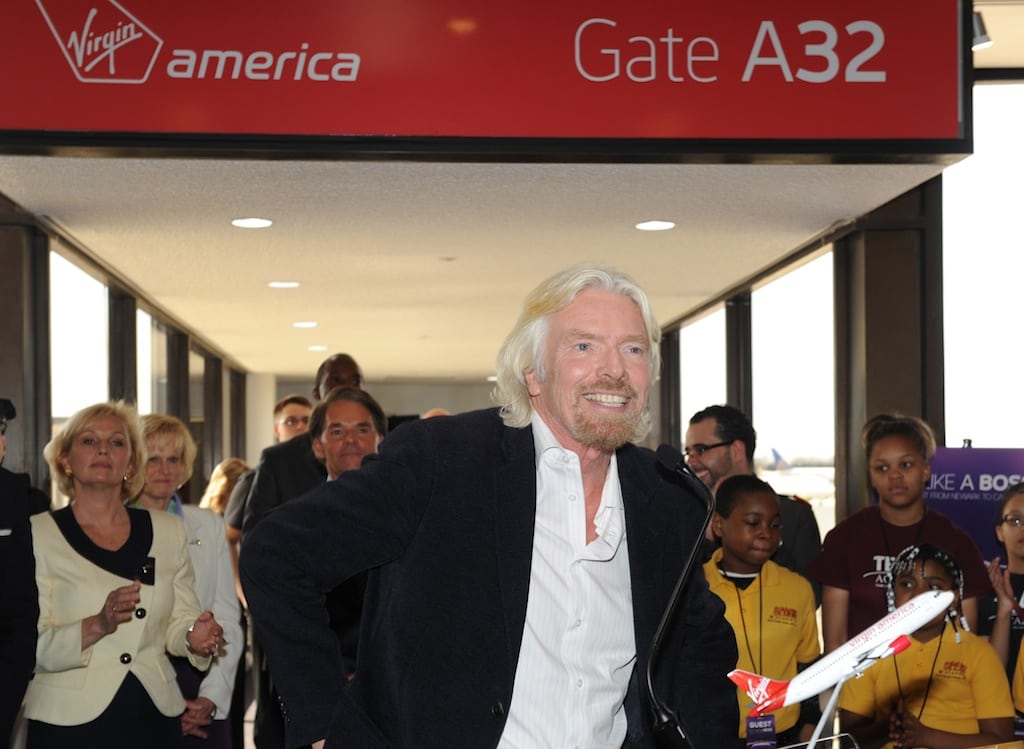United responds to new Virgin America routes by slashing fares, adding flights

Skift Take
On a side note, it is interesting that Richard Branson, only a minority owner in Virgin America because of U.S. regulations, played such a prominent role at the Newark festivities -- and in articulating Virgin America's threat to file an antitrust complaint.
Does United Airlines' response to Virgin America's entry into Newark Airport this week pass the sniff test?
Virgin America this week introduced three daily nonstop flights from both Los Angeles and San Francisco to Newark.
United's response was to cut its fares by about a third in order to match Virgin America's fares, and then United also increased its total number of Newark-Los Angeles and Newark-San Francisco roundtrips by around 60%. By this summer, United would have 14 frequencies EWR-LAX and 16 in EWR-SFO.
Appearing on CNBC on Wednesday, John Rainey, United's CFO, chalked it all up to normal business behavior. When asked about an accusation from Virgin Group founder Richard Branson that United is engaging in a price war at Newark to destroy Virgin America, Rainey said:
"He’s inaccurate in that comment. You kn
